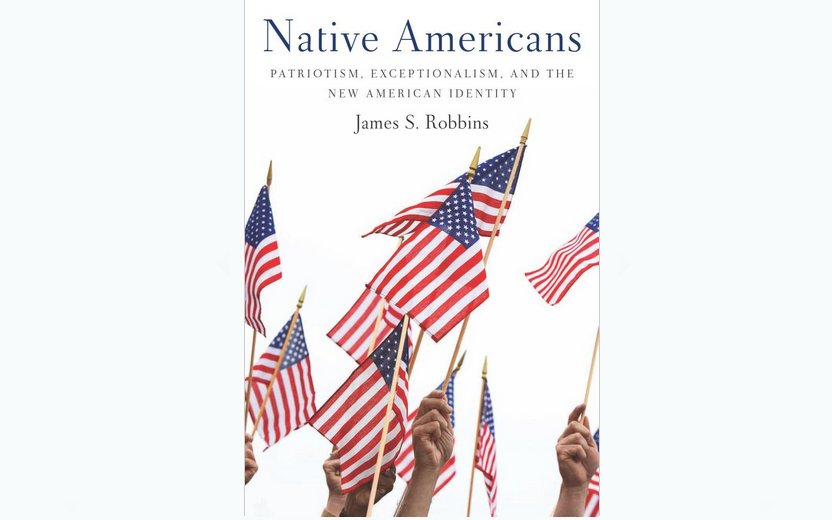The following is an excerpt from the new book by Rare Deputy Editor James S. Robbins, Native Americans: Patriotism, Exceptionalism, and the New American Identity.
Videos by Rare
Exceptional America
At the G-20 Summit in London in 2009, President Obama was asked about the notion of American exceptionalism and said, “I believe in American exceptionalism, just as I suspect that the Brits believe in British exceptionalism and the Greeks believe in Greek exceptionalism.” He went on to clarify: “I think that we have a core set of values that are enshrined in our Constitution, in our body of law, in our democratic practices, in our belief in free speech and equality, that, though imperfect, are exceptional.” But the impression was left that Mr. Obama believed that the concept of American exceptionalism was mere nativist prejudice, the sense held by people in every society that they are somehow special.
It is not unusual for people to praise their own country. Every place has its cheerleaders who will argue its virtues, whether justifiable or not. The practice is ancient; the funeral oration delivered by the Athenian leader Pericles honoring the dead in the first year of the Peloponnesian War with Sparta was a glorification of the Athenian polis and justification for the continuance of the struggle. (The Spartans characteristically did not need florid orations to know why they were better than the Athenians. To them it was obvious, so why bother saying it?) Kings, emperors, and assorted other potentates throughout history have had their regimes’ praises sung, usually on command.
But American exceptionalism does not refer to simple nationalistic boasting, flag-waving, or chanting “USA” at a sporting event. The idea predates the formation of the United States and is a product of a uniquely American culture founded in freedom and pledged to the pursuit of human aspirations. An outsider, former British Prime Minister Margaret Thatcher, stated it well:
Americans and Europeans alike sometimes forget how unique is the United States of America. No other nation has been built upon an idea, the idea of liberty. No other nation has so successfully combined people of different races and nations within a single culture. … Whether in flight from persecution or from poverty, the huddled masses have, with few exceptions welcomed American values, the American way of life and American opportunities. And America herself has bound them to her with powerful bonds of patriotism and pride.
The American Zion
The earliest expressions of this exceptional impulse were tied to the idea of Providence; America had a higher purpose. Early settlers, particularly in New England, believed that the land was chosen and prepared by God for his children, and many who arrived believed that it was a Zionist experiment. America was either explicitly part of a divine plan or a tabula rasa on which the God-given or natural potential of man would be revealed. Like Jerusalem, it was to be a “city on a hill, which cannot be hid,” a light unto the nations. This current of American thought has long endured. “You can call it mysticism if you want to,” Ronald Reagan said, “but I have always believed that there was some divine plan that placed this great continent between two oceans to be sought out by those who were possessed of an abiding love of freedom and a special kind of courage.”
John Winthrop, governor of Massachusetts Bay Colony, originated the image of America as the New Jerusalem. In a sermon on the ship Arabella in 1630, as the Puritans were readying to make landfall, Winthrop implored the settlers to
keep the unity of the spirit in the bond of peace. … We shall find that the God of Israel is among us, when ten of us shall be able to resist a thousand of our enemies; when He shall make us a praise and glory that men shall say of succeeding plantations, “may the lord make it like that of New England.” For we must consider that we shall be as a city upon a hill. The eyes of all people are upon us.”
Winthrop’s views on the workings of Providence would hardly pass contemporary muster. In 1634, after disease had ravaged the Indian tribes surrounding the colony, he wrote a friend in England, “But for the natives in these parts, God hath so pursued them, as for 300 miles space the greatest part of them are swept away by smallpox which still continues among them. So as God hath thereby cleared our title to this place, those who remain in these parts, being in all not 50, have put themselves under our protection.”
This view of America as a land ordained by God to be free was called Federal Theology, and reached its highest expression in the works of Ipswich, Massachusetts, preacher John Wise. In 1710 he discussed the nature of just civil government, asserting that “every man must be acknowledged equal to every man,” and “the end of all good government is to cultivate humanity and promote the happiness of all and the good of every man in all his rights, his life, liberty, estate, honor, and so forth.” His views had significant influence in prerevolutionary America, and even on the phrasing of the Declaration of Independence.
In his first inaugural address, George Washington also echoed the view that Americans were a chosen people:
The propitious smiles of Heaven can never be expected on a nation that disregards the eternal rules of order and right which Heaven itself has ordained, and since the preservation of the sacred fire of liberty and the destiny of the Republican model of government are justly considered as deeply, perhaps as finally, staked on the experiment entrusted to the hand of the American people.
European observers of the American scene noted this sense of being a chosen people. French political thinker Alexis de Tocqueville, after seeing the workings of American democracy in the 1830s, recorded that “for fifty years it has been impressed upon the inhabitants of the United States that they form the only religious, enlightened, and free people. They see that with them, up to the present, democratic institutions prosper, while meeting with failure in the rest of the world; they have then an immense opinion of themselves, and they are not far from believing that they form a species apart from the human race.” German philosopher Georg Wilhelm Friedrich Hegel concluded in 1831 that America is “the land of the future, where, in the ages that lie before us, the burden of the World’s History shall reveal itself.”
James S. Robbins is Deputy Editor of Rare and author of Native Americans: Patriotism, Exceptionalism, and the New American Identity. Follow him on Twitter @James_Robbins


